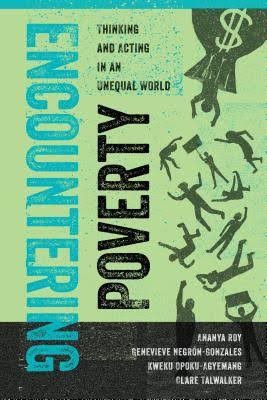Reflexivity

Indigenous Research Methodologies
A number of past posts presented books on decolonization – Fanon on struggles, Ngugi on language, and Smith on methodologies. How might a grounding in decolonization shape research? Margaret Kovach addresses this question in “Indigenous Methodologies: Characteristics, Conversations, and Contexts” (2009). In seeking to understand how Indigenous methodologies have been utilized in research, Kovach presents […]
Tags: #decolonization #Indigenous Methodologies #Indigenous Research Methodologies #Methodologies #Reflexivity

Encountering Poverty
The 2016 book “Encountering Poverty: Thinking and Acting in an Unequal World” brings together some of the insights draw from teaching in a critical undergraduate program. Roy, Negron-Gonzales, Opoku-Agyemang and Talwalker offer something between an edited volume and an undergraduate textbook, while also offering critical reflexivity of their own roles and positionality. The target audience […]
Tags: #Complexity #Education #International development #Poverty #Reflexivity

The Making of a Better World
Rosalind Eyben spent a career as a practitioner in international development and then as an academic on the subject. Her 2014 book, “International Aid and the Making of a Better World: Reflexive Practice” is one of the few books that critically self-analyzes a personal trajectory. Unlike some personal journals/journeys of aid workers, this focuses upon […]
Tags: #Gender #Human Rights #International development #Participation #Reflexivity
